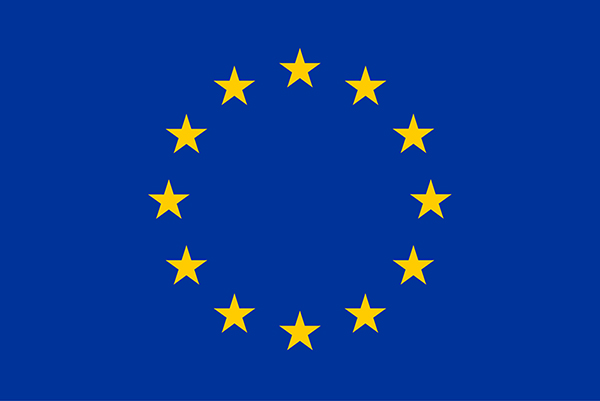Description of the ERC Advanced Grant NCDFP

|

|
|
Type of grant: |
ERC Advanced Grant |
|
Title: |
Non-Commutative Distributions in Free Probability |
|
Funded by: |
European Research Council |
|
Principal Investigator: |
Roland Speicher |
|
Duration: |
1 February 2014 - 31 January 2019 |
| Aim: |
The aim of the grant is to study new directions in free probability theory with
high potential to lead to breakthroughs in our understanding of random matrix models
and operator algebras. We will drive forward the study of free analysis which is intended to provide a whole new mathematical theory for variables with the highest degree of non-commutativity and which lies at the crossroad of many exciting mathematical subjects. More specifically, the objective of the research founded by this grant is to extend our armory for dealing with non-commutative distributions and to attack some of the fundamental problems which are related to such distributions, like: the existence and properties of the limit of multi-matrix models; the isomorphism problem for free group factors, and more generally, properties of free entropy and free entropy dimension as invariants for von Neumann algebras. |
Components of the research supported by the ERC Advanced Grant NCDFP
|
Quantum Symmetries: |
The first project deals with quantum symmetries of non-commutative distributions. We try to classify non-commutative symmetries and describe the effect of invariance under
such quantum symmetries for non-commutative distributions. This is based on the theory of easy quantum groups. Details |
|
Free Malliavin Calculus: |
In the second project we will develop the theory of free Malliavin calculus. This will then be used to investigate regularity properties of non-commutative distributions. Details |
|
Analytic Aspects of Operator-Valued Free Probability: |
In the third project, we will study the analytic theory of operator-valued free convolutions. One specific goal in this context is to find and implement algorithms for calculating non-commutative distributions and asymptotic eigenvalue distributions for general random matrix problems. Details |
| Updated: 23 September 2013 Moritz Weber | Impressum |


